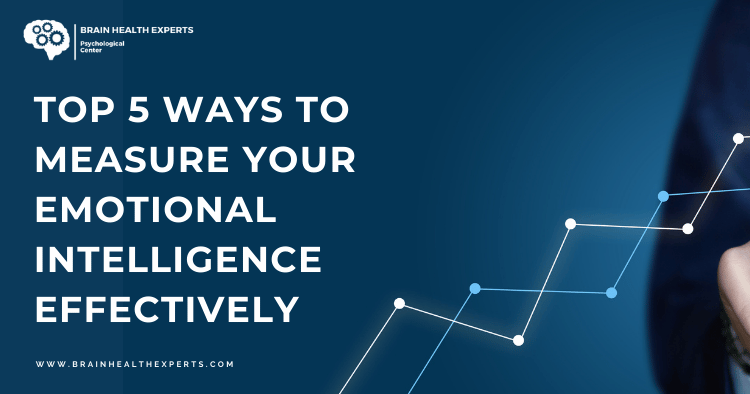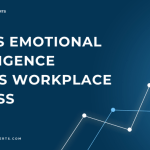Table of Contents
- Understanding Emotional Intelligence
- Self-Assessment Questionnaires
- 360-Degree Feedback
- Behavioral Assessments
- Emotional Intelligence Tests
- Key Takeaways
Understanding Emotional Intelligence
Emotional intelligence (EI) refers to the ability to recognize, understand, and manage our own emotions while also being aware of and influencing the emotions of others. It’s a crucial skill set that enhances both personal and professional relationships. In today’s fast-paced world, measuring your emotional intelligence can help you become more self-aware, improve your interactions, and even boost your career prospects.
“Emotional intelligence is not just about being nice; it’s about understanding the emotions that drive behavior.”
FAQs about Emotional Intelligence:
- What are the components of emotional intelligence?
The main components include self-awareness, self-regulation, motivation, empathy, and social skills. - Why is emotional intelligence important?
High emotional intelligence can lead to better teamwork, improved leadership, and healthier relationships. Additionally, it can significantly boost your mental health, as discussed in our article on 10 Powerful Affirmations to Boost Mental Health Today.
Self-Assessment Questionnaires
Self-assessment questionnaires are a straightforward way to gauge your emotional intelligence. These tools consist of a series of questions designed to evaluate your emotional responses and interactions with others. By answering honestly, you can gain insights into your strengths and weaknesses.
“Self-assessment is the first step to self-improvement. Be honest with yourself.”
Example Self-Assessment:
| Question | Rate from 1 (Strongly Disagree) to 5 (Strongly Agree) |
|---|---|
| I can easily identify my emotions. | 1 | 2 | 3 | 4 | 5 |
| I remain calm under pressure. | 1 | 2 | 3 | 4 | 5 |
| I can empathize with others’ feelings. | 1 | 2 | 3 | 4 | 5 |
You can find various self-assessment tools online, such as the Emotional Intelligence Self-Assessment.
Benefits:
- Quick and easy to complete
- Offers immediate feedback
- Encourages self-reflection
“Reflection is the key to understanding. Take the time to ponder your emotional responses.”
For more insights on enhancing your emotional intelligence, consider our article on 10 Effective Emotional Regulation Techniques for Daily Life.
360-Degree Feedback
360-degree feedback is a comprehensive method that gathers input from a variety of sources, including peers, supervisors, and subordinates. This holistic approach provides a well-rounded view of your emotional intelligence in different contexts.
“Feedback is a gift. Embrace it, even when it’s hard to hear.”
Implementation Steps:
- Select Participants: Choose individuals who interact with you regularly.
- Create a Questionnaire: Develop questions focusing on EI competencies.
- Collect and Analyze Data: Compile the feedback and look for patterns.
Key Considerations:
- Ensure anonymity to encourage honest feedback.
- Be open to constructive criticism.
For more on the importance of feedback and emotional intelligence in leadership, check out our article on 7 Ways Emotional Intelligence Transforms Leadership Success.
Behavioral Assessments
Behavioral assessments observe how you react in various situations. These assessments often involve role-playing or simulations to evaluate your emotional responses and interpersonal skills.
“How you respond in real time can reveal much about your emotional intelligence.”
Popular Behavioral Assessments:
- Role-Playing Scenarios: Engage in simulated interactions to assess your emotional reactions and communication skills.
- Situational Judgment Tests (SJTs): Respond to hypothetical scenarios to demonstrate your emotional intelligence in decision-making.
Benefits:
- Real-time feedback on emotional responses
- Helps identify areas for improvement in real-world situations
Emotional Intelligence Tests
There are several standardized emotional intelligence tests that can provide a more formal evaluation of your EI levels. These tests usually consist of multiple-choice questions or true/false statements aimed at assessing your emotional skills.
“Standardized tests can provide clarity, but they’re just one piece of the puzzle.”
Recommended Tests:
- Emotional Quotient Inventory (EQ-i): Measures various aspects of emotional intelligence and provides a detailed report.
- Mayer-Salovey-Caruso Emotional Intelligence Test (MSCEIT): A performance-based test that evaluates how well you can reason with emotions.
For more information on these tests, visit the MHS Emotional Intelligence page.
Benefits:
- Provides a formal, validated assessment
- Offers detailed feedback and reports for personal development
Key Takeaways
Measuring your emotional intelligence is not just about understanding yourself better; it’s about leveraging that understanding to enhance your relationships, career, and overall well-being. Whether you choose self-assessment questionnaires, 360-degree feedback, behavioral assessments, or formal tests, each method provides valuable insights.
“Awareness is the first step towards improvement. Use these tools to guide your journey.”
Final Thoughts:
- Emotional intelligence is a skill that can be developed and improved over time.
- Regularly measuring your EI can help you stay on track in your personal and professional growth.
- Remember that feedback, whether positive or negative, is an opportunity for growth.
For a deeper dive into emotional intelligence, consider visiting Daniel Goleman’s website, where you can find resources and articles on the subject.
By actively measuring and enhancing your emotional intelligence, you can pave the way for richer relationships and greater success in all areas of your life. For additional insights into boosting emotional well-being, explore our articles on 10 Ways Positive Thinking Boosts Emotional Well-Being and Understanding Emotional Intelligence: Key Insights & Benefits. Happy measuring!




